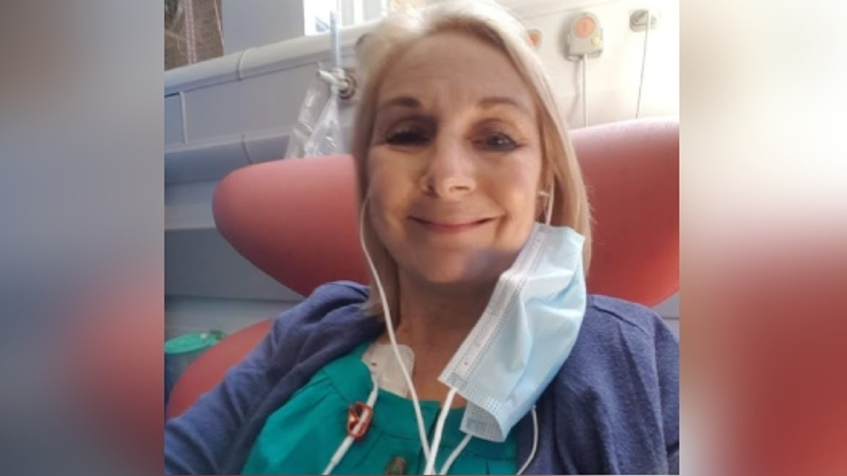Girl is department's 1,000th radiotherapy patient
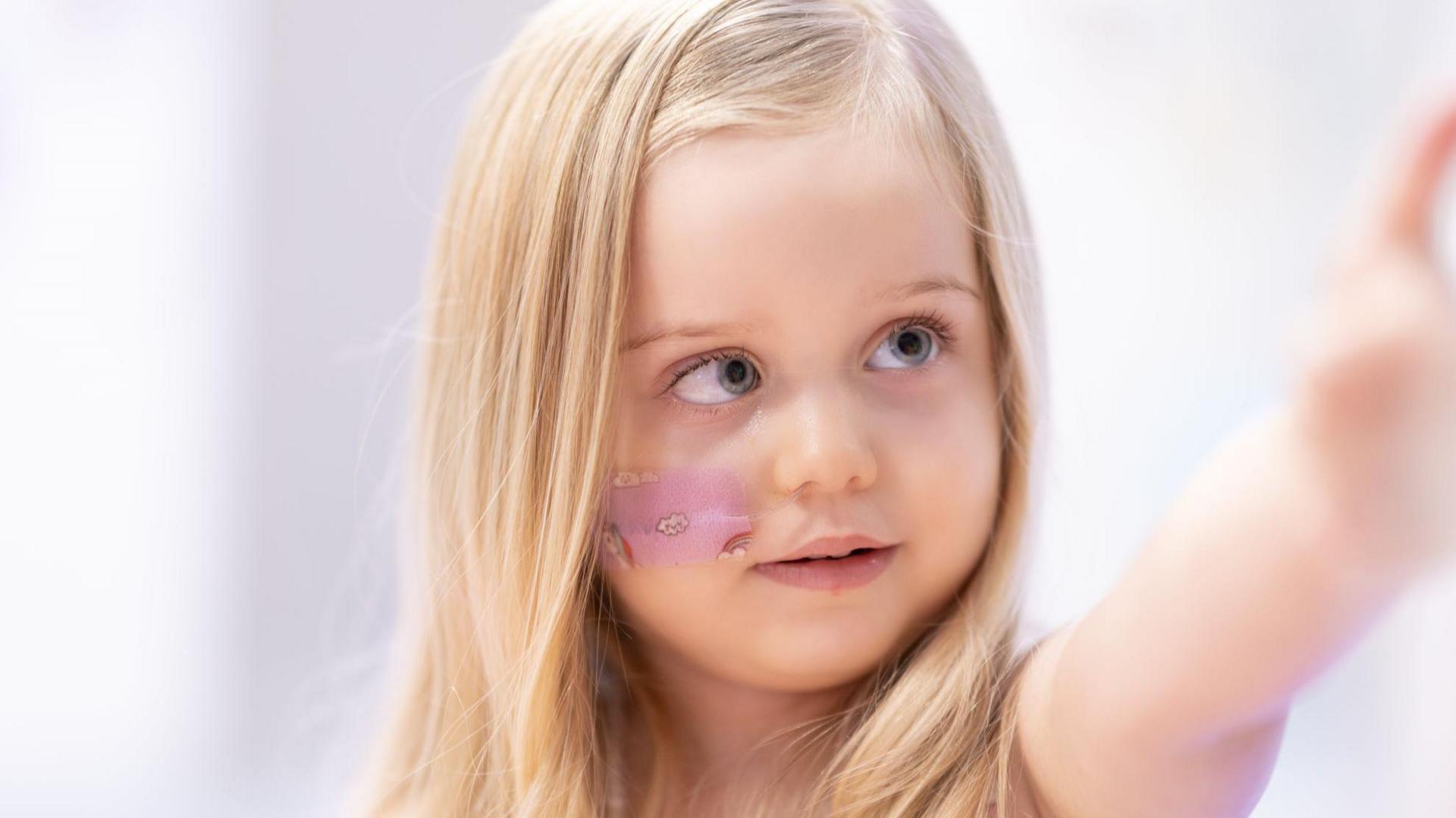
Seren was diagnosed with a type of brain cancer, called an ependymoma, in July
- Published
The mother of a three-year-old girl who was a hospital's 1,000th patient to receive a highly targeted form of radiotherapy has said her daughter was "incredibly fortunate".
The University College London Hospital (UCLH) proton beam therapy (PBT) department is one of only two national centres providing the treatment.
Seren, from Bournemouth, was diagnosed with a type of brain cancer, called an ependymoma, in July.
Her mother Clare said: "We know that only a few years ago people had to travel abroad for this treatment.
"The fact that she is the 1,000th NHS patient to be treated here is really special."
The proton beam treatment reduces the risk of radiation damage to healthy tissues in cancer patients.
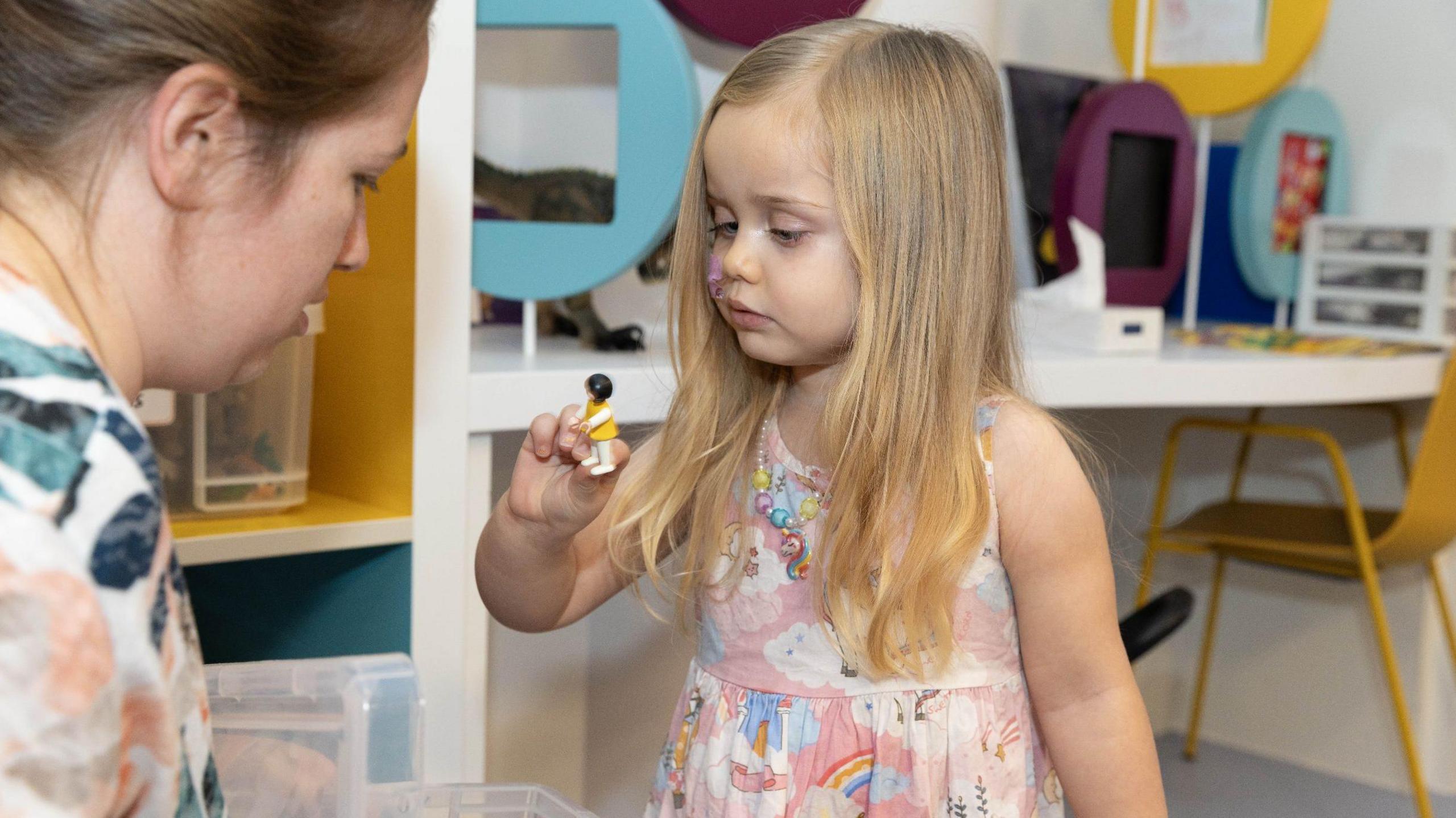
Seren underwent six weeks of proton beam therapy treatment
Seren's father Mark said his daughter seemed a "little out of sorts and wobbly" after a family holiday in Devon, and had a "crook in her neck which seemed really unusual".
A CT scan at her local hospital revealed she had a brain tumour in the back of her head.
She was rushed by ambulance to the specialist children's neurological ward at University Hospital Southampton (UHS) where an MRI scan showed the tumour was operable.
She underwent 12 hours of surgery to remove it, and when the tumour was confirmed to be cancerous she was referred to UCLH to undergo PBT.
Seren was discharged from UHS in mid-August following weeks of physiotherapy, and she had to learn to walk and swallow again. Six weeks of PBT treatment followed at UCLH's Grafton Way Building.
Victims left 'devastated' by £2m car theft gang
- Published3 days ago
Museum races to raise £3.5m for almshouse triptych
- Published3 days ago
Mum told to stop breastfeeding in shoe shop
- Published4 days ago
Mark said: "Seren doesn't really understand the treatment or the enormity of her journey over the last few months, as she's still so little.
"But she has been so happy while having proton beam therapy at UCLH and loves the playroom and the therapy cat that visits too.
"She gets to watch Peppa Pig in the anaesthetic room each morning before treatment so she runs into the room to do that."
Seren was left with a slight misalignment of her eyes following the surgery, but the condition is starting to improve and will be monitored.
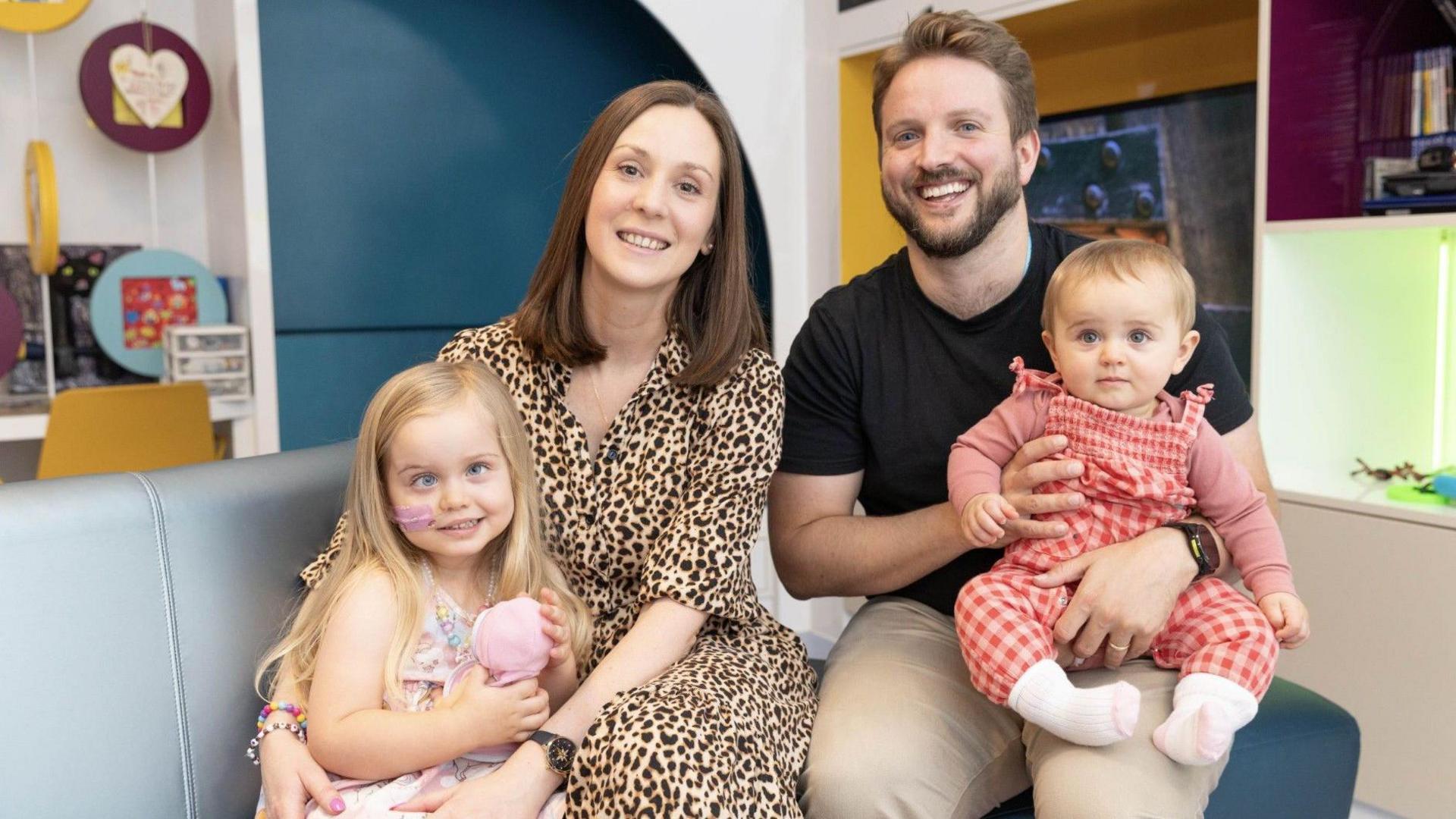
The family had just returned from a family holiday when Seren fell ill
Dr Jenny Gains, consultant oncologist and Seren's doctor, said the therapy was an "ideal treatment" following the surgery that removed her tumour.
"As she is only three, her brain is still developing and she obviously has a lot of growing still to do," she said.
"PBT allows us to target the tumour site precisely, minimising the risk of damaging healthy tissue and brain cells, which is especially important for children."
The PBT department opened in December 2021.
Clinical lead Dr Yen-Ching Chang said reaching 1,000 patients was a "huge milestone", adding: "Everyone should be very proud of their contribution to this fantastic achievement."
PBT is also provided by The Christie in Manchester.
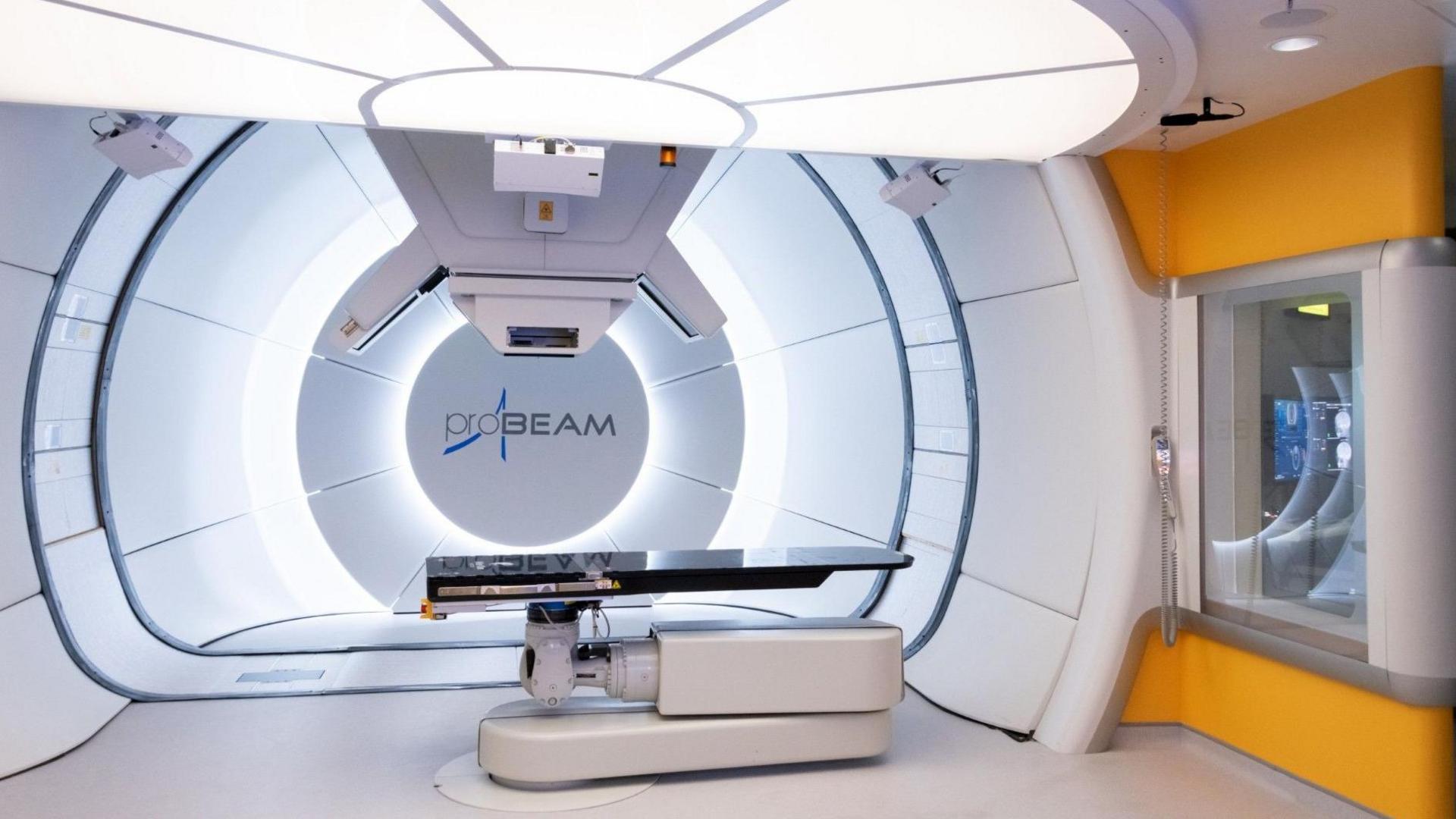
Seren had a general anaesthetic each day as patients have to lie very still for the treatment to be effective
Get in touch
Do you have a story BBC Dorset should cover?
- Published11 November

- Published6 days ago
